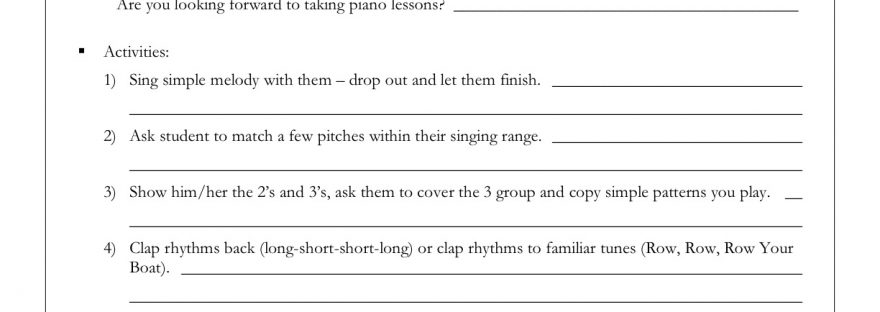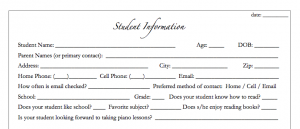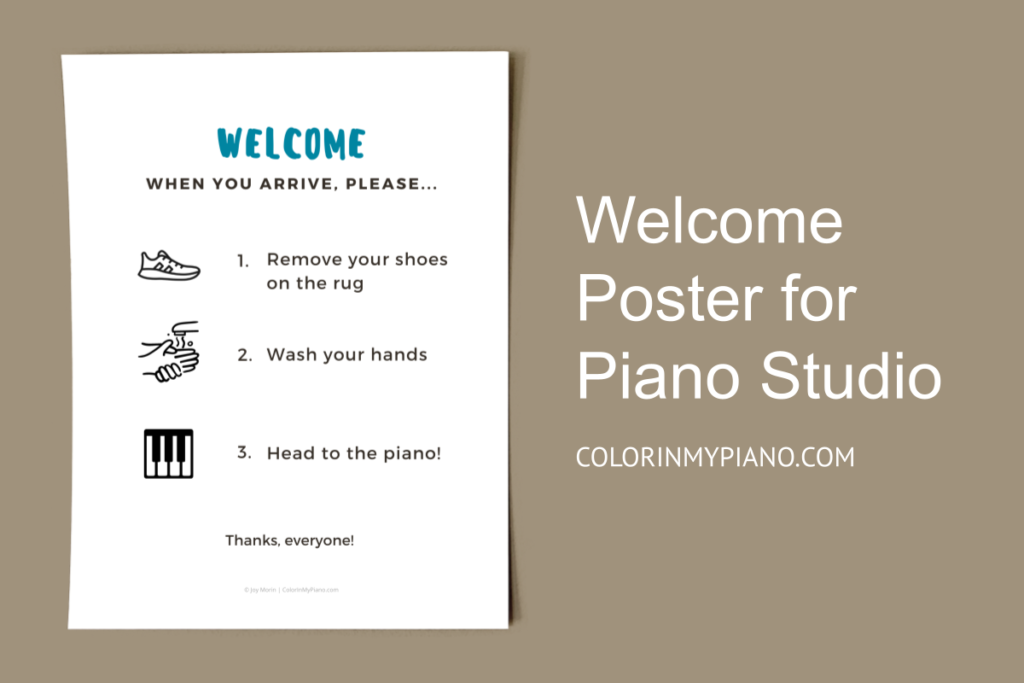
In yesterday’s post, I talked about my gradual transition from online lessons to in-person for my Michigan-based students (my Ohio-based students from before my move will remain online). As promised, in today’s post I am sharing a free printable poster you can use to welcome students and help remind them of your protocols when they first arrive.
Any time students come for their first lesson at my studio, I find it’s important to “train” them, so to speak, with my expectations such as removing shoes, washing hands, etc.. After welcoming students at the door, this involves stating something like: “Whenever you arrive in the future, I’d like you to remove your shoes here, wash your hands here, and then head to the piano!”
I thought it might be useful to post a friendly poster with these reminders, in case it helps students remember what to do the first few times they arrive until it becomes a habit. I laminated it and use poster putty to hang it where it will be easily seen.
I created a few different variations of the poster, in case you might like to use it! I’ve included versions with and without masks (for pandemic times and non-pandemic times). And there are versions included for using hand sanitizer versus washing hands in a sink.
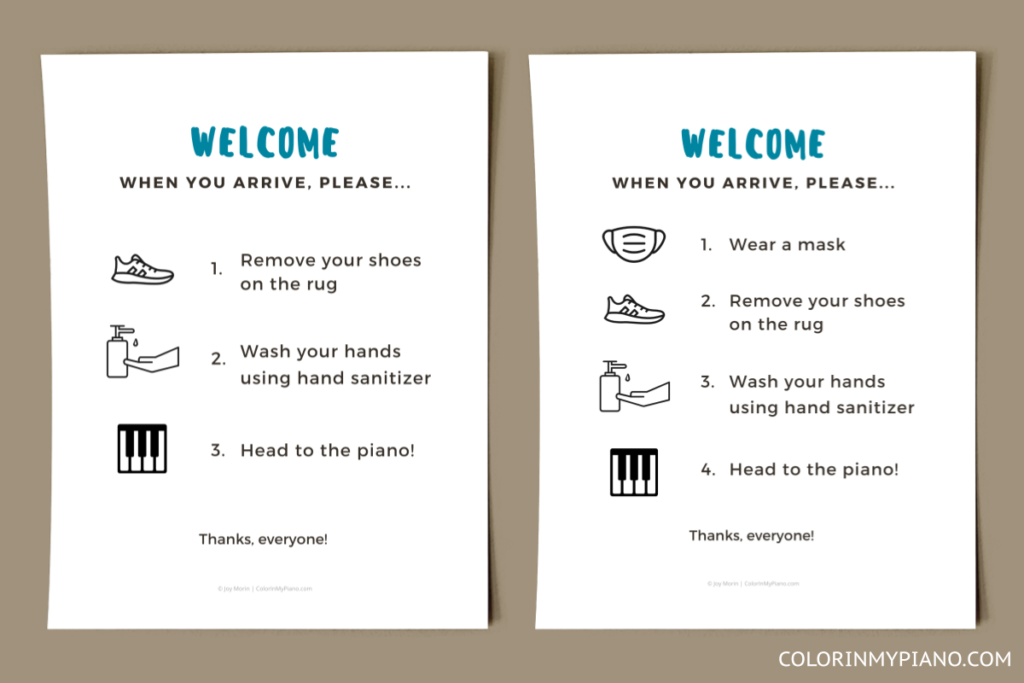
To download this PDF, visit the Printables > Studio Business page and scroll down to “Welcome Poster for Piano Studio.” Enjoy!
 Welcome Poster for Piano Studio (158.9 KiB, 1,376 hits)
Welcome Poster for Piano Studio (158.9 KiB, 1,376 hits)




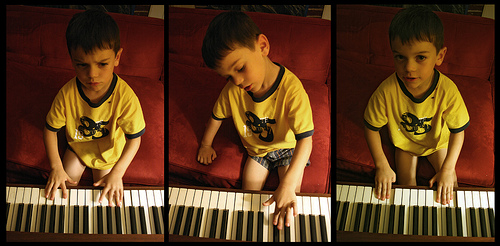

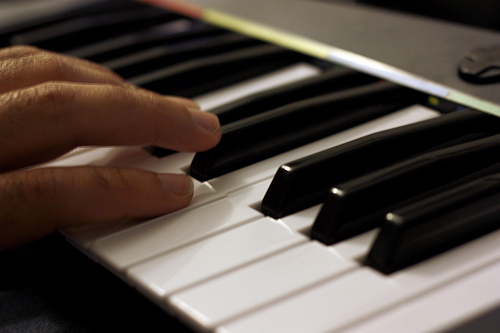
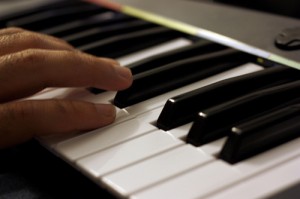 This week I gave a few first lessons to some new students. One of the things I always ask during
This week I gave a few first lessons to some new students. One of the things I always ask during 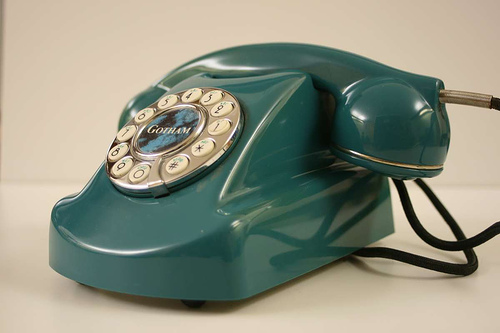
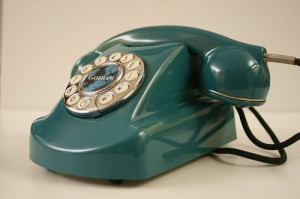 A few months ago, I received a call from a parent who was looking for lessons for her two daughters. She was a little reluctant to commit to lessons because of a past experience with another teacher: the teacher was an excellent performer, but unfortunately not as great of a teacher. I chatted with her for a few minutes and I told her about my studio and my teaching experience. Then I offered to give her a trial lesson for free, so she could see for herself what my teaching style is like. She agreed to this, and afterwards, was happy to commit to lessons. We’ve been continuing ever since.
A few months ago, I received a call from a parent who was looking for lessons for her two daughters. She was a little reluctant to commit to lessons because of a past experience with another teacher: the teacher was an excellent performer, but unfortunately not as great of a teacher. I chatted with her for a few minutes and I told her about my studio and my teaching experience. Then I offered to give her a trial lesson for free, so she could see for herself what my teaching style is like. She agreed to this, and afterwards, was happy to commit to lessons. We’ve been continuing ever since.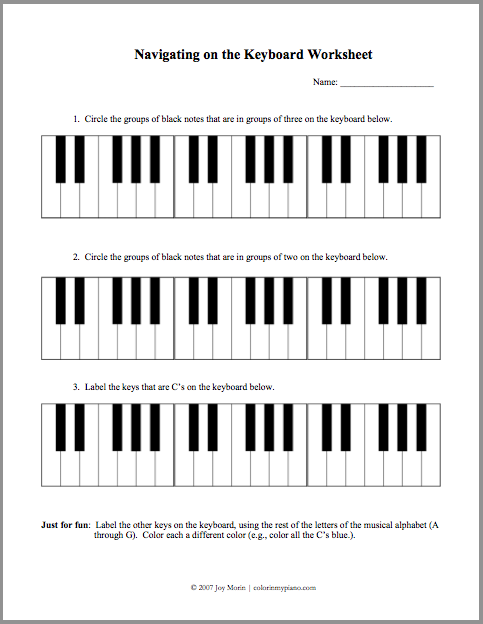
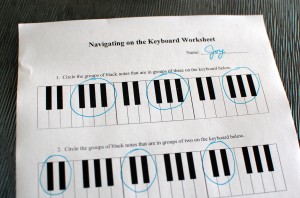 A new free worksheet has just been added to the Printables page: Navigating at the Keyboard.
A new free worksheet has just been added to the Printables page: Navigating at the Keyboard. 